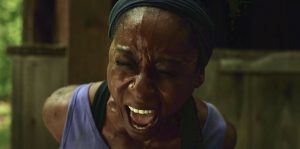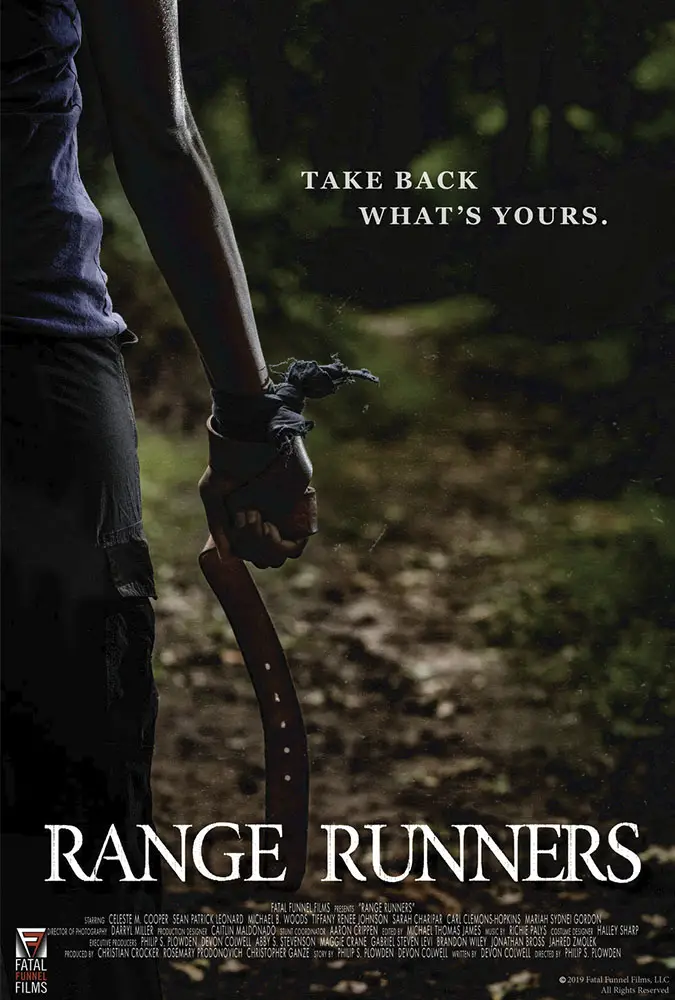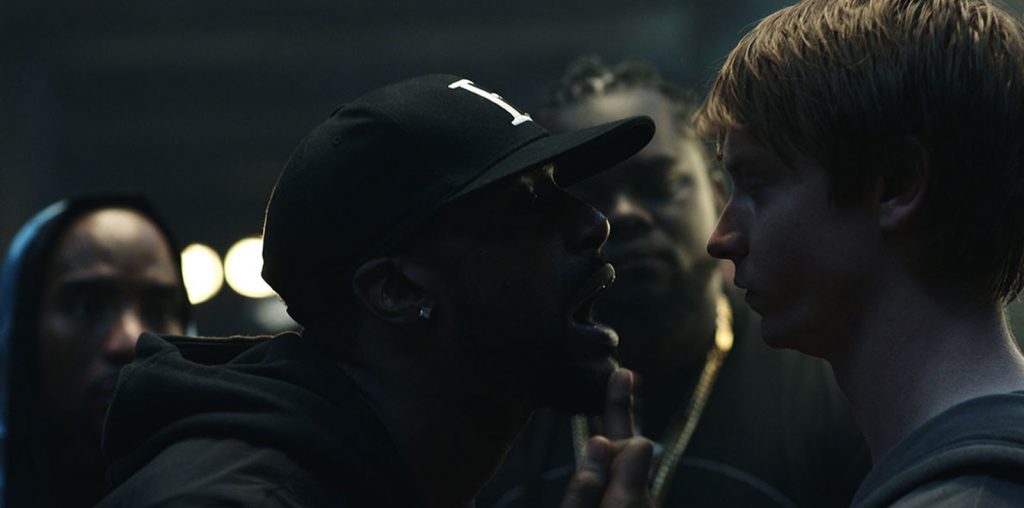
What follows her painful self-liberation appears to telegraph a revenge plot, Mel getting even and hunting down her unwitting prey. She certainly appears capable as we see in one of the coolest sequences of the film in which she stalks the two men through the hollows and trees of the forest, highlighting the undersung importance of location scouting; what could feel repetitive and monotonous in the surroundings is consistently visually engaging. However, Mel seems much more interested in getting back her stolen pack, and we eventually learn that what she is after is a keepsake it holds from her recently deceased father. She was not seeking vengeance at all but rather a sense of closure, and when she actually manages to retrieve it and escape her attackers around the mid-point of the film, I was truly wondering where this story would go from here. Would it continue to alternate between hunter and hunted predator and prey dynamics, or did it have anything more to say? Using some admittedly heavy plot mechanics, a cumbersome third act seeks to provide that closure through a bloody showdown between Mel and Wayland, who, after disappearing for a spell, shows up again at the end.
It is in the ensuing climactic tussle that the questions surrounding her father’s lessons are truly interrogated. As Wayland toys with the injured Mel, he maniacally coos: “After all that I’ve done for you…Well, darlin, you oughta be thanking me. All that fight in you…all that piss and vinegar, that’s there because I brought it out of you.” These words could just as easily be spoken by Mel’s father, who, at least at this moment, Wayland has become the stand-in for. So when the battle climaxes in true True Romance fashion (corkscrew and all!), the extreme violence that occurs feels earned. Mel is figuratively killing her father as she literally kills Wayland.
“…focused on themes of pain, strength, struggle, and trauma…”
Despite Mel’s father’s conviction that any challenge, no matter how painful or grueling, can provide an opportune “teachable moment,” and that those lessons do, in fact, come in handy, both Mel and the objective eye of the camera look at this philosophy askance. Just because Mel possesses the physical and internal tools to survive, the film does not suggest that this strength and resilience is a costless achievement. Her father was a domineering presence, a man who enabled her to become resourceful and strong at the cost of those things that don’t need strength to grow — things that require nurturing and protection in order to flourish. Now, the absence of this seemingly indestructible figure personifies the physical limits everyone will eventually reach.
For a film so focused on themes of pain, strength, struggle, and trauma, Range Runners does no harm; it is not a revelatory reinvention of the genre it incorporates, but it is visually engaging, consistently entertaining, passionately performed, and actually has something to say. Even when some of the more plot-oriented devices don’t quite stick the landing, the message of the film absolutely does. It doesn’t end with a neat bow that suggests Mel has achieved some final closure with the specter that is her father, let alone the trauma sustained through the ordeal she has just gone through. It does at least acknowledge that she has been laid bare and persevered and is a step closer to finding the balance between surviving and living.

"…forced to martial the inner strength honed through her father’s lessons..."

